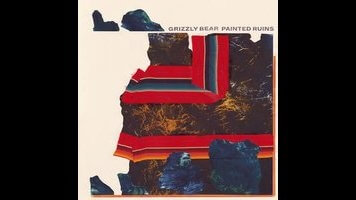Grizzly Bear returns with some beautiful sounds inspired by bad times

Painted Ruins, Grizzly Bear’s fifth record and first in five years, sounds completely at ease with itself. The first few tracks teem with pastoral beauty; check the swooning, 70mm composition of “Three Rings” or the early-morning birdsong guitars of “Four Cypresses.” This has been a natural growth: The almost geological scale of 2006’s Yellow House gave way on 2009’s Veckatimest to lush, organic pastures, less focused on cathartic climaxes than ecosystems of detail, and it’s a development that continues here into a gleaming sonic opulence. Midway through, “Losing All Sense” clicks into one of the band’s wrangly, interlocking grooves, but augments it with enormous starbursts of guitar. On “Aquarian,” on the spidering “Glass Hillside,” on closer “Sky Took Hold,” the group repeatedly pulls out these reverb-drenched analog explosions of sound, offering a welcome reminder that few bands in contemporary music are as focused on the noble, yet oft-devalued task of sounding good as Grizzly Bear.
There’s something quaint about this, almost ’70s in its mindset. Grizzly Bear makes albums as genuine listening experiences, the sort of records you’d pull out to test a new set of speakers at the hi-fi store, nodding learnedly about their “brightness” and “range.” There’s also long been a sort of classic rock, studio-nerd stateliness to its compositions, recalling the meticulousness (if not the behavior) of bands like Fleetwood Mac or Steely Dan. When Grizzly Bear performs live, they’re arrayed in a straight line across the stage, and it’s sort of gobsmacking how talented each individual member is, all contributing incandescent counter-melodies and proving that they can create such a lovely sound with just, you know, guitars and shit, all in real time. On record, that can be easy to take for granted. It’s like an artisanal piece of furniture; you feel like you should be doing something nobler than eating brunch on it. Grizzly Bear makes albums that demand you do more than just throw it on in the background (even if it does make for nice brunch music).
Listened to front to back, theirs is a discography of steady, quiet evolution, a filling-in of cavernous spaces. 2004’s Horn Of Plenty was an almost ambient release, elemental in its aims, which was then shaped and formed into dramatic arrangements on Yellow House. In Christopher Bear’s drums and Chris Taylor’s counterintuitive bass lines, Veckatimest found a huge, percussive revolution. And while Shields couldn’t help but feel a tad anticlimactic after that breakthrough, it still showed the band increasingly confident in its instrumentation. Painted Ruins picks up the best threads of all of them, the rhythm section clicking with an almost post-punk intelligence and newer, thicker splashes of synthesizers imbuing the proceedings with a sci-fi sense of wonder. And yet the sum of all of this is an album no less ambient in its pleasures than the demo-like gloaming of Horn Of Plenty, creating an immaculate wall of sound built on trilling orchestras and lush glockenspiels and firecracker explosions of guitar. The ghostly quality of those early records remains; the ghosts are just louder now.

 Keep scrolling for more great stories from A.V. Club.
Keep scrolling for more great stories from A.V. Club.